
Solus.
250 Miles above Earth and falling...
A lone astronaut aboard the International Space Station suddenly loses communication with Earth. He soon begins to experience a series of strange events that put him and the entire station at risk…
Directed by Jonathan Brooks
Written by Jonathan Brooks & Andrew McGee
Starring Henry Douthwaite
Music composed by Nir Perlman
Sound Design & Mix by Michael Osborne
VFX by Jeb Hardwick
About.
Solus is a short Science-fiction film made entirely out of archive NASA footage, something that has never been done before. The story centres around Commander Matthew Connors, a lone astronaut aboard the International Space Station, who suddenly loses contact with Earth and begins to experience a series of strange incidents that put him and the station at risk.
The concept for Solus was first developed by director Jonathan Brooks after discovering the NASA archive, a library of assets spanning over 60 years of space flight. The idea of a film made entirely of out archive assets was then born. But with that came many challenges to solve. Solus has been revered by critics and film festivals, but also demonstrates to audiences the breathtaking wonder of what mankind has achieved.
Trailer.
Director’s statement.
Creating an entire short film from archive NASA footage has never been done before and we are incredibly proud of the final result which we feel stands on its own as a compelling Sci-Fi while at the same time amazing viewers by the incredible authentic footage.
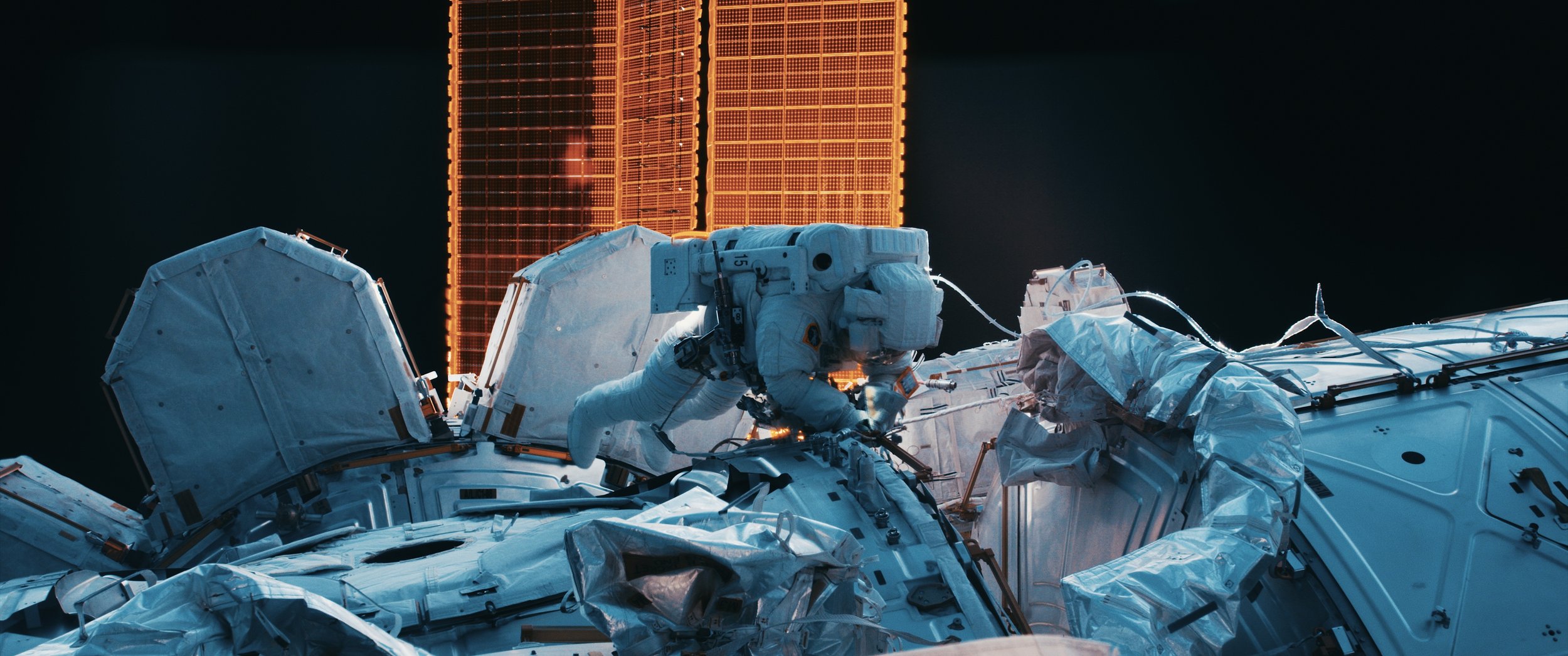
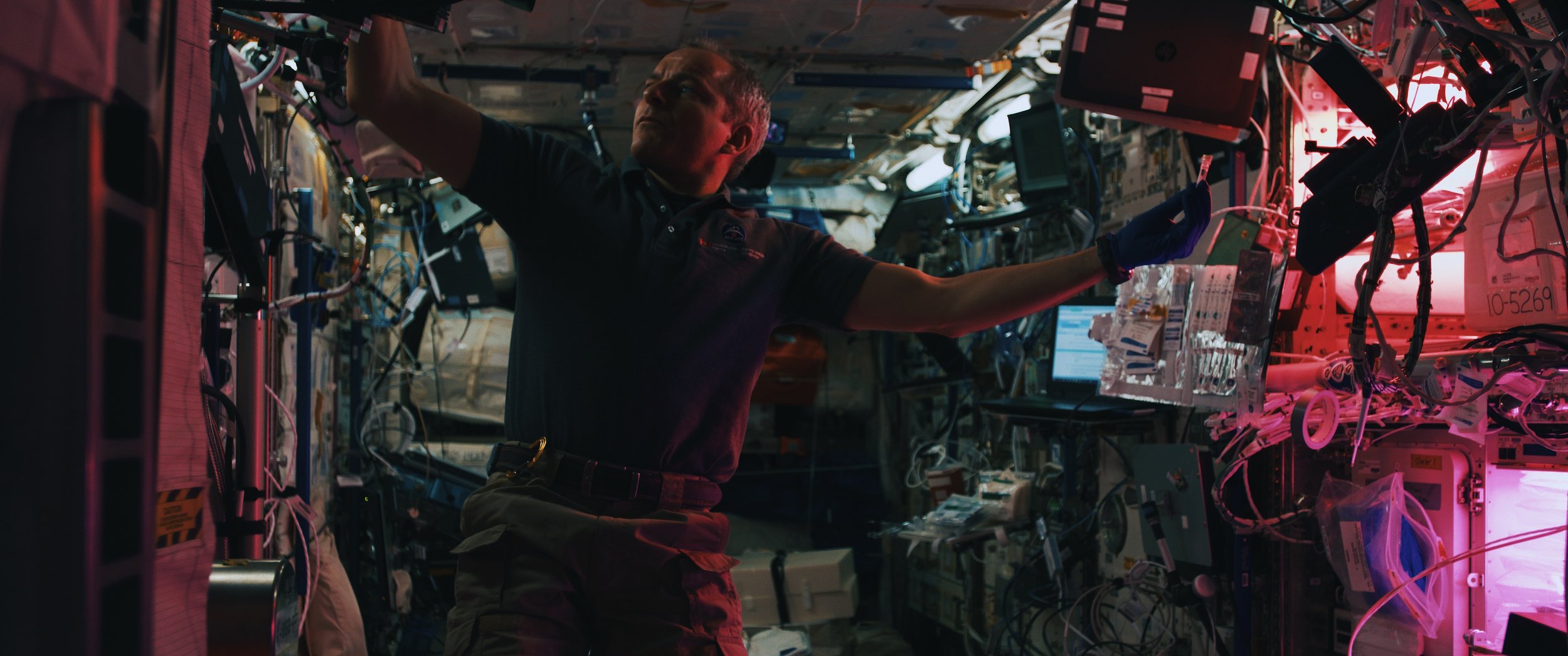
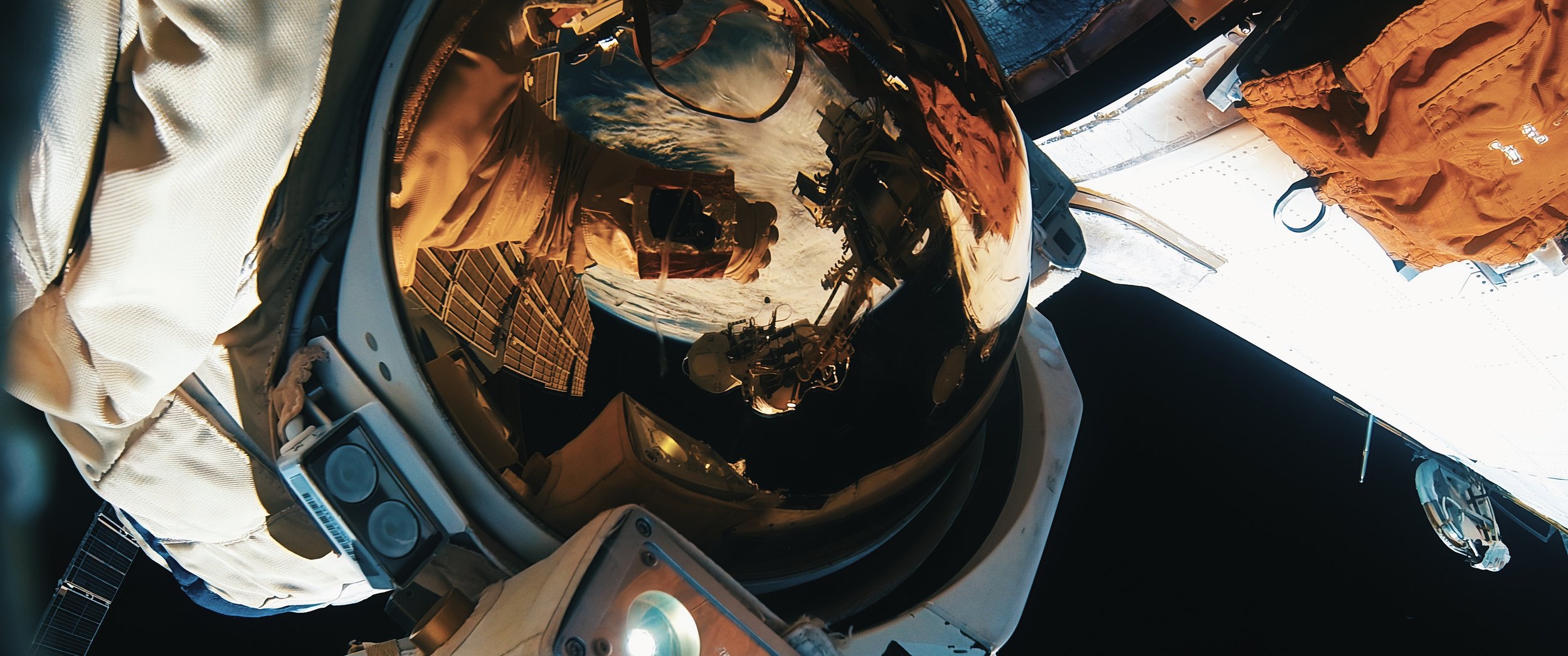
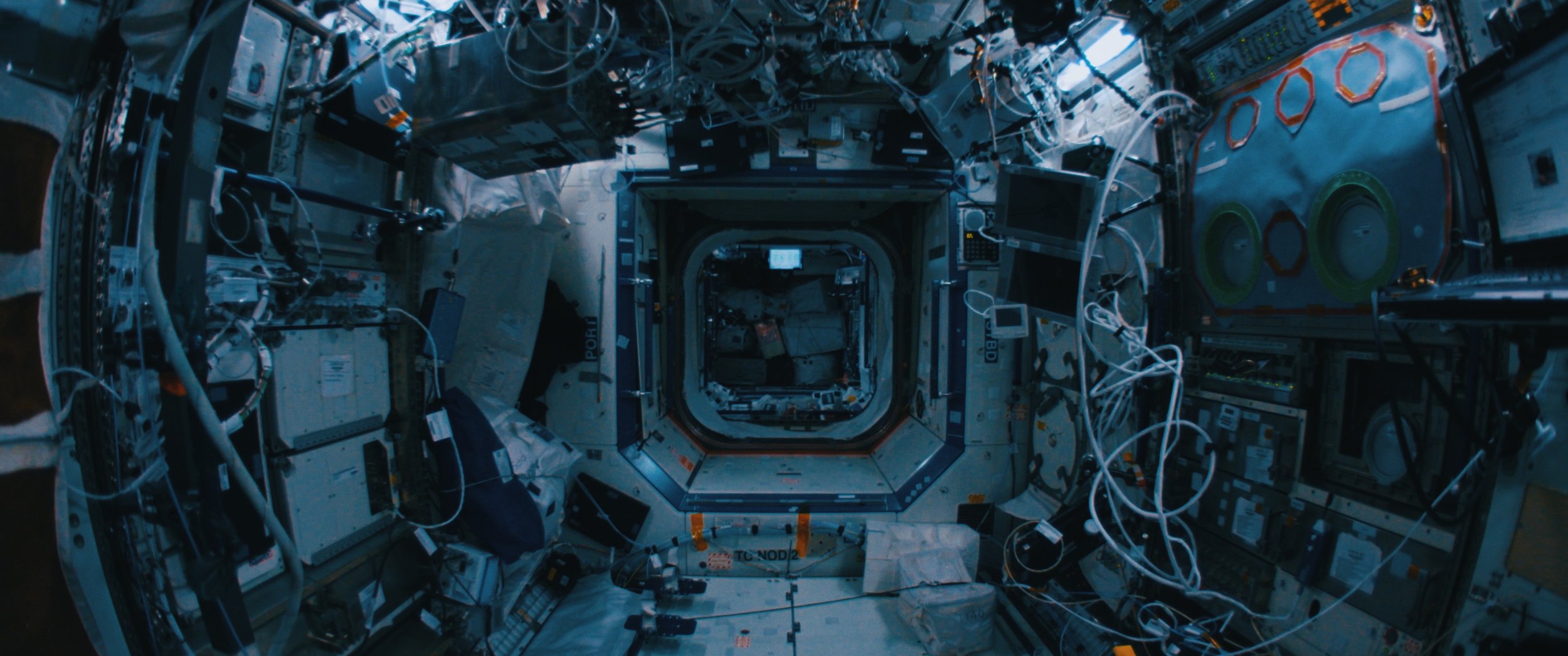

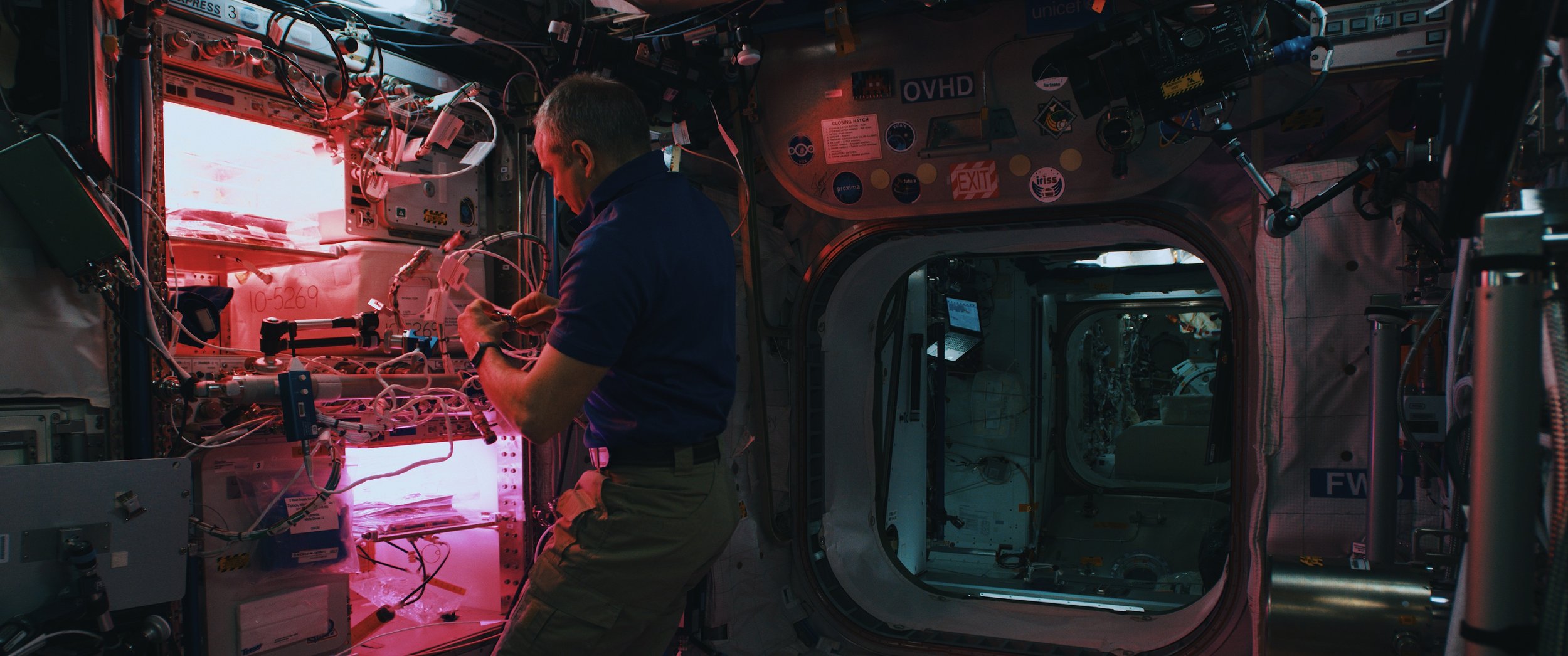
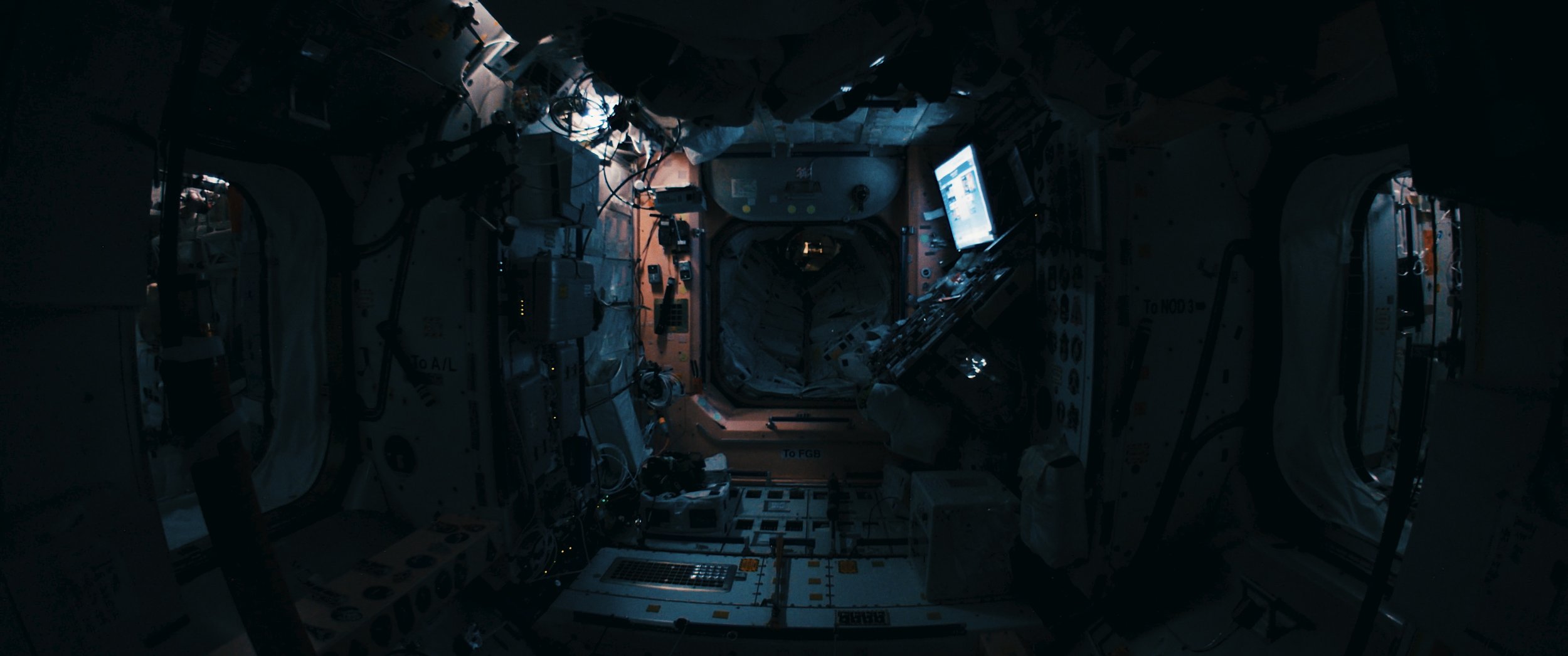
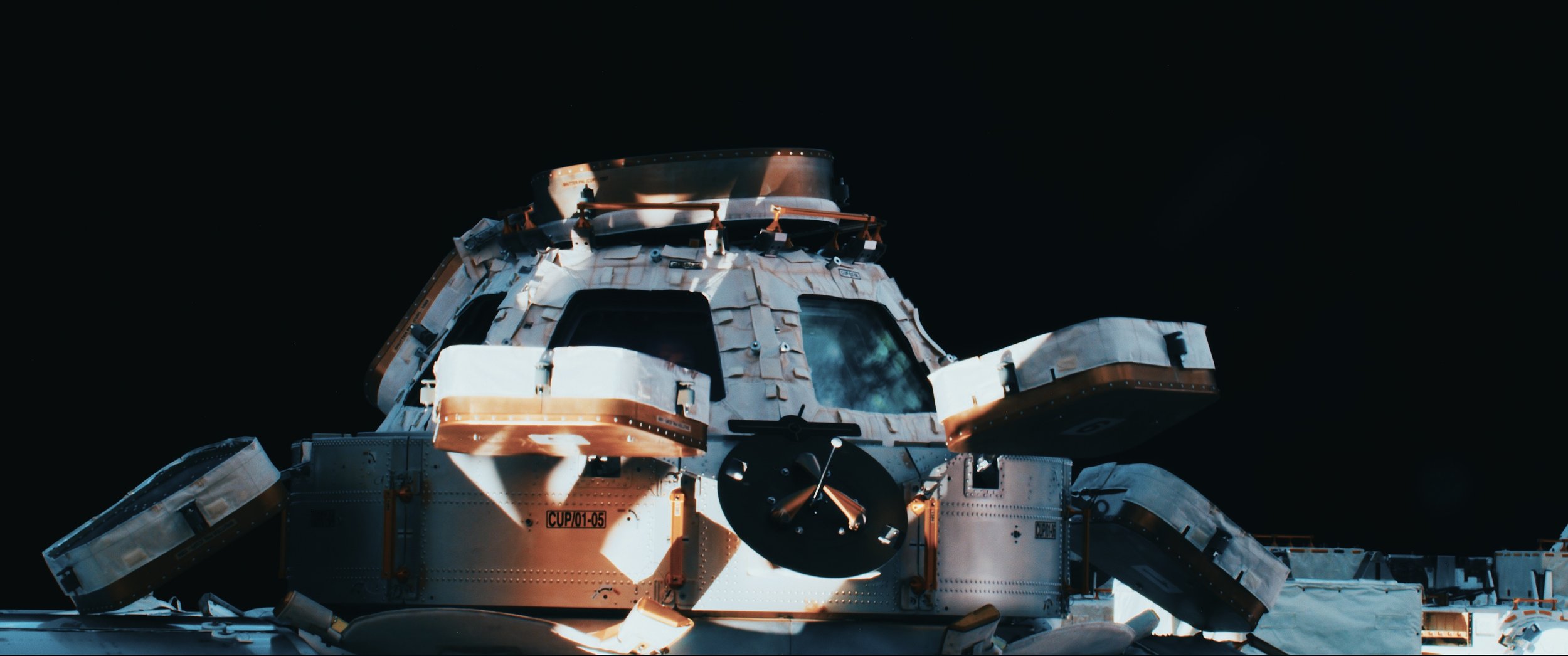
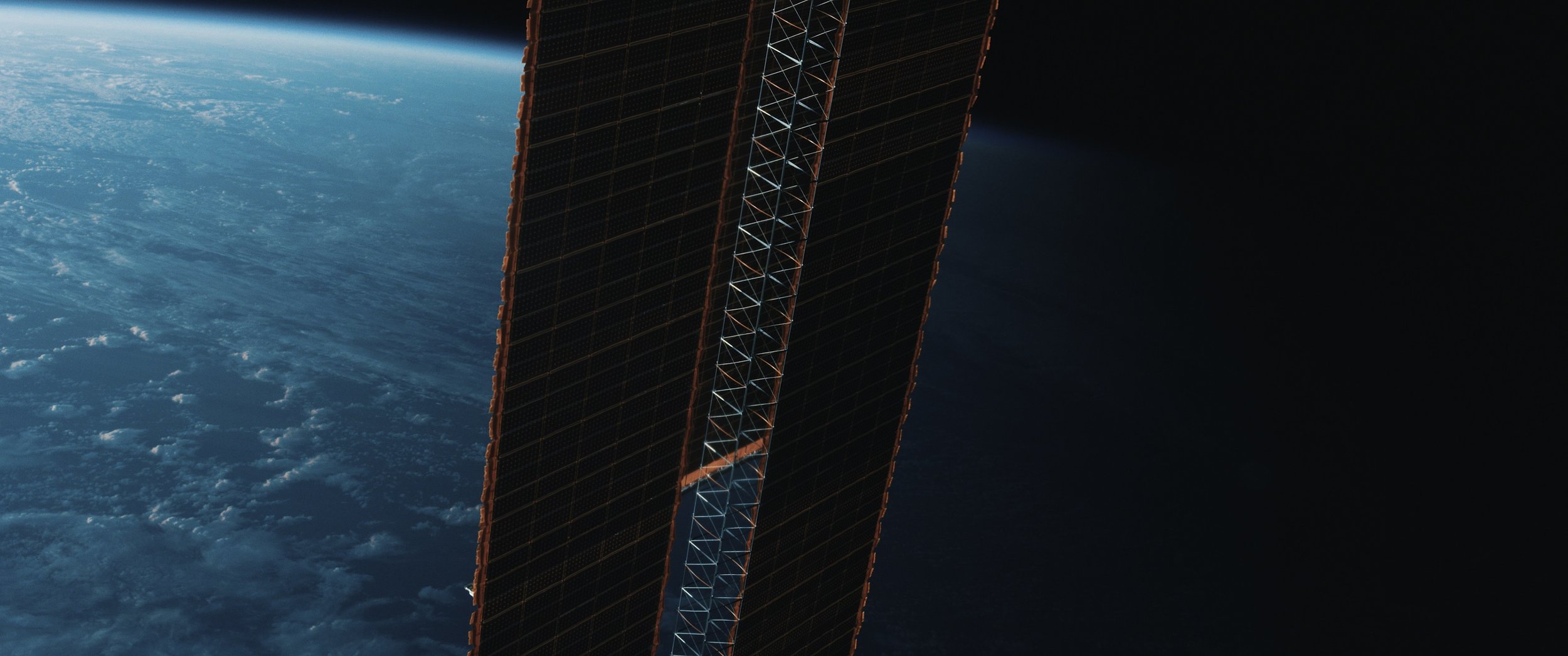
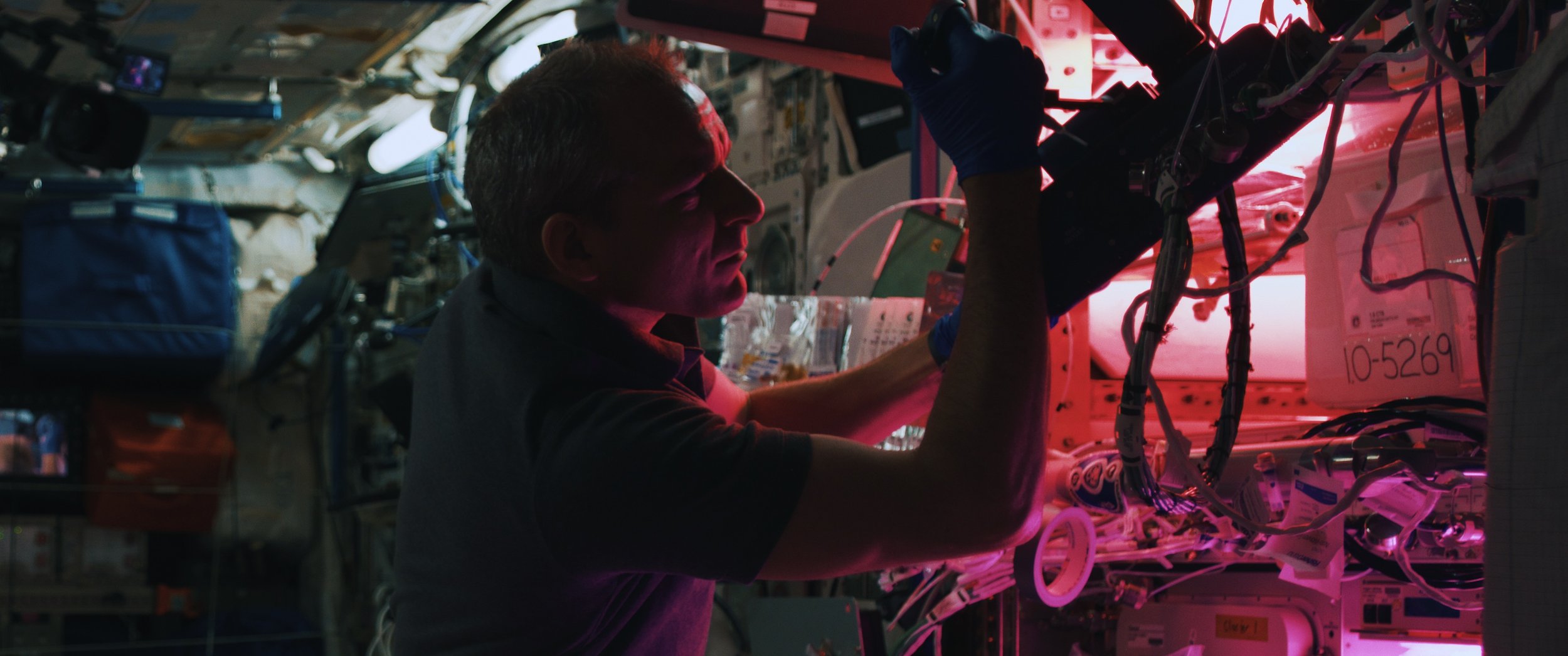
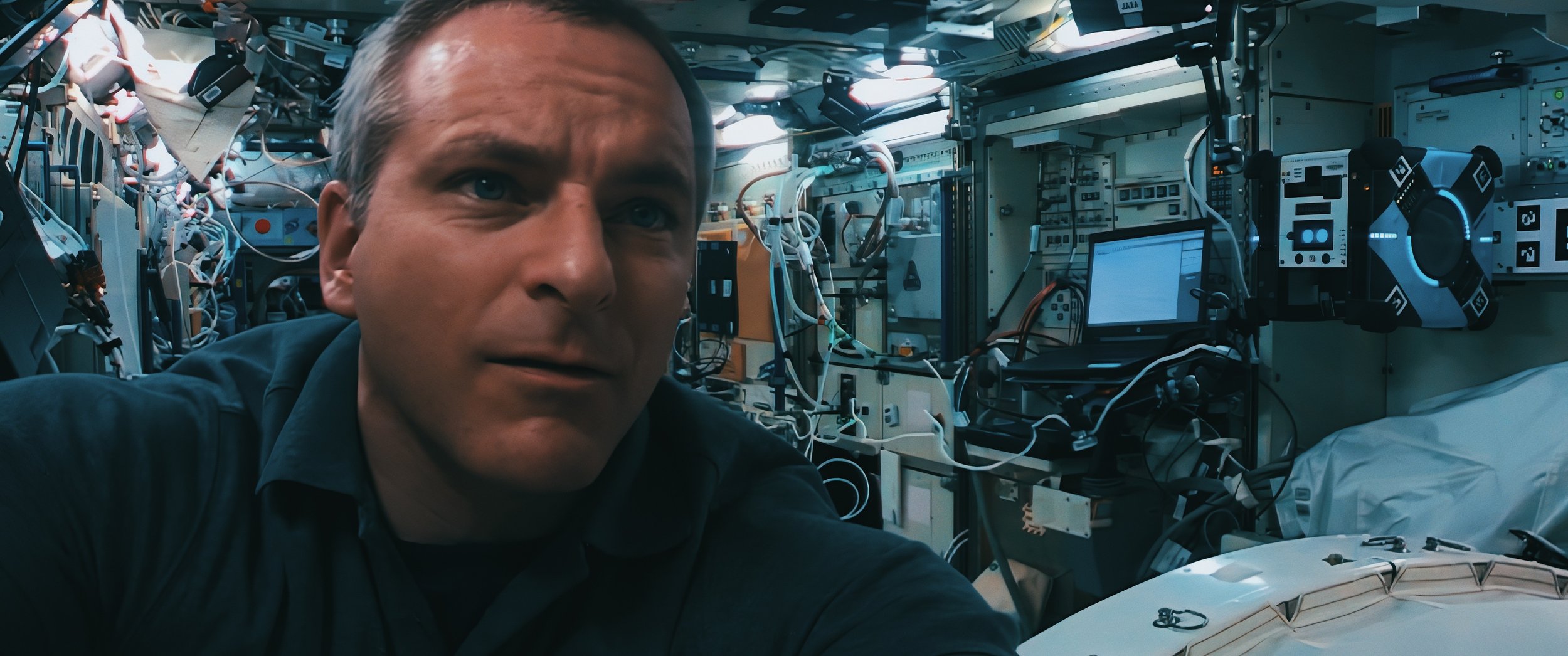



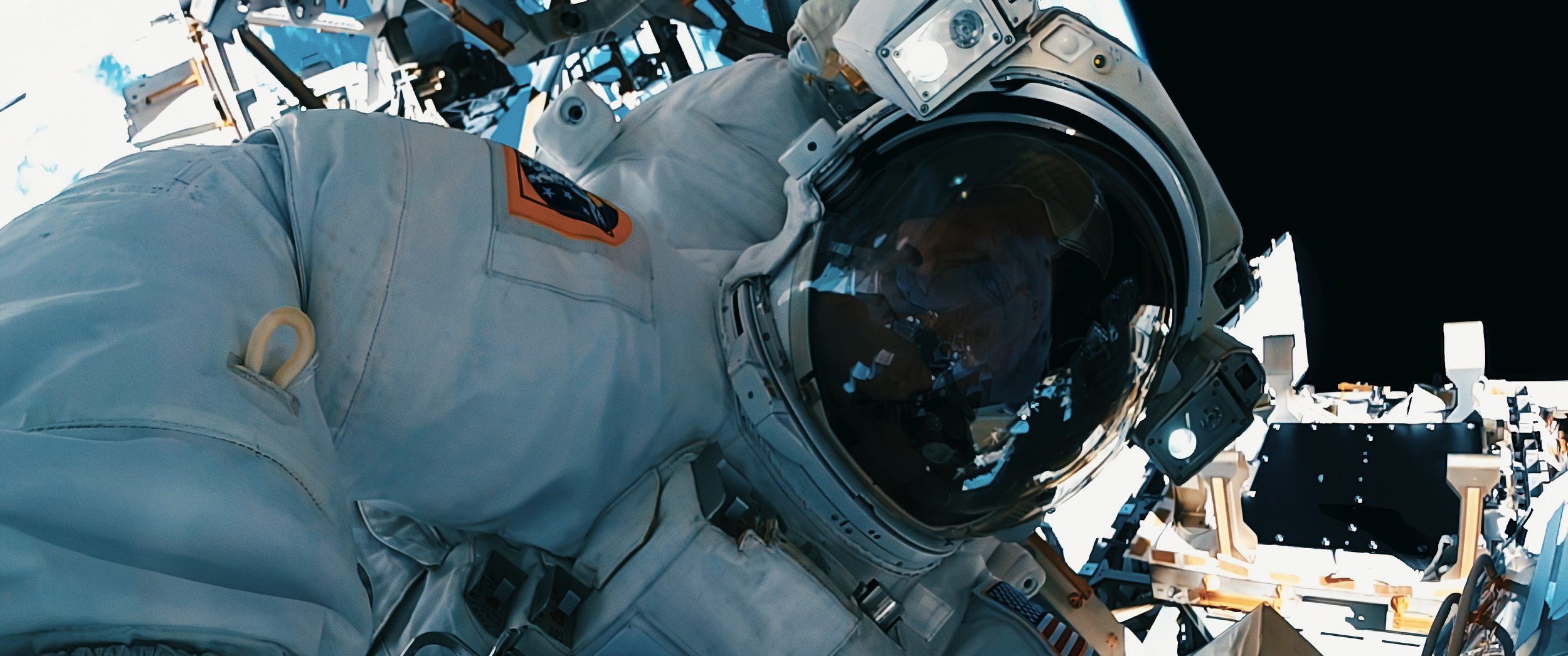
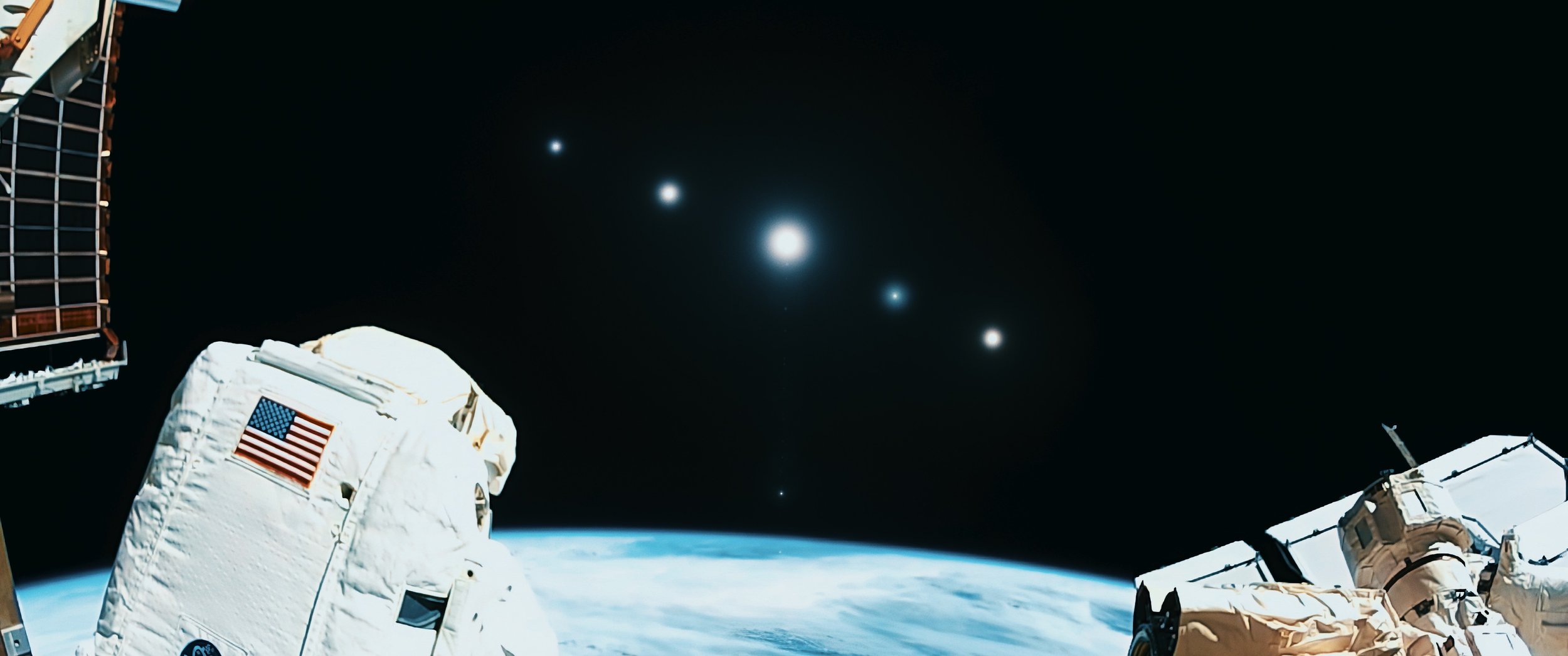
Reviews.
"A simple yet inspired concept, Jonathan Brooks and his team have crafted a brilliant new entry into the genre." 5/5 Stars
- UK Film Review
After losing contact with Earth a lone astronaut aboard the International Space Station begins to feel a strange presence. As his isolation from the team on Earth extends he realises that he needs to act in order to survive.
With films set in space it is impossible not to feel the presence of the lineage from 2001: A Space Odyssey to Solaris to Alien to Gravity. From a lens flare as a star rises over the gorgeous curvature of a planet, to the creeping dread of every slow and deliberate movement, these hallmarks of the genre are present in Solus. But, like the aforementioned list, these familiarities do not signify diminishing returns. There is something perpetually awe inspiring, and simultaneously terrifying, about the seemingly impossible marvel of drifting weightlessly above the Earth. And that is even more incredible when given the context that Solus is a film constructed entirely from publicly available NASA footage.
This appropriating and repurposing of footage makes for a sense of extreme realism. It requires the film to be built in the edit, a core principle of filmmaking that feels increasingly overlooked in 2022, what with the category’s omittance from the live portion of the Oscars, the rise of the one-shot style film, and the age of the Twitter screenshot.
Co-writer/director/editor Johnathan Brooks selects and compiles his footage with precision, finding the right balance of interior and exterior to cut between as well as making canny use of first person footage.
Because of the film’s construction, Solus has a Bressonian quality as it relies on Henry Douthwaite’s narration to tell the story with the model (Bresson preferred to qualify his performers as models rather than as actors) in this case being a literal astronaut. It helps to make the heightened narrative plausible as they are performing their daily tasks as naturally as possible with no concept of performance. Therefore, a lot of the obscure, horror-encroaching elements of the short are developed through the audio design. One example being the sound of knocking coming from outside of the station. Another being the utilisation of a shot of the astronaut taking meter readings. In this scene the dials and instruments, in a delightful form of wordplay, appear to be making strange new music.
Solus is an entrancing and memorable short that repurposes real-life NASA footage to construct a haunting sci-fi tale. A simple yet inspired concept, Johnathan Brooks and his team have crafted a brilliant new entry into the genre.
"Brooks has certainly created a film the majority of us have never seen before." 5/5 Stars
- Screen Critix
Since its creation in 1958, NASA has become the world’s most famous name when it comes to Space science and technology. From its very beginnings, NASA has been taking pictures of the Earth, the Moon, the planets, and other astronomical objects inside and outside our Solar System. With NASA being a federal agency, this means that all of their footage, photographs, videos, and information cannot be copyrighted and therefore are all legally available to use by anyone free of charge in the public domain.
Director and writer Jonathan Brooks has used this opportunity to create an original narrative around footage obtained from NASA’s very own public archives and he manages to produce a fascinating film experiment that uses some quite magnificent imagery, the likes of which we have very rarely seen.
According to Brooks, Solus had many technical challenges to overcome, and he and his crew spent weeks searching for the relevant NASA footage from their enormous 60-year library. The challenge was finding videos that, not only worked within the story but would look visually outstanding on the big and small screen. Altogether, it took them 3 months of searching through countless clips to find the right pieces to structure the story. Essentially, they all worked backward by editing the film first and then writing the story from that. Unfortunately, it’s the story that, while good, is also the weakest part of the film but only because, as a plot, it is one we have seen numerous times when it comes to films set in this type of environment.
The Martian and Gravity are both recent films that have dealt with a lone astronaut losing communication with colleagues and being stranded in space, but over the decades, this same theme has been examined very frequently in film and on TV including in things like Star Trek, Dr. Who, The Outer Limits, and The Twilight Zone.
Brooks uses voiceover in the form of video and audio diaries of the stranded astronaut to keep us informed on what is going on, with the voice provided by a very intense Henry Douthwaite. Although the story is nothing particularly new, the dialogue Brooks has written remains extremely authentic during the 12 minutes run time. Again, Brooks has worked overtime on the research making sure the terminology, pronunciation, and words are factually correct. What is lacking in Solus is a sense of jeopardy and urgency, the audience does realise the stakes are high but that doesn’t come across in the footage. Despite this being a life or death situation the images and our astronaut remains pretty happy, calm, and collected throughout the film.
But the footage is absolutely stunning, any weaknesses in the narrative shouldn’t obscure the brilliance of the pictures we are looking at, they are exceptional. Solus is a completely unique film that manages to educate while attempting to entertain, and in doing so should be celebrated for its vividness. Brooks has certainly created a film the majority of us have never seen before.
"Solus is a remarkable visual achievement that announces the arrival of a major filmmaking talent." 5/5 Stars
- Take 2 Indie Review
Gravity’s distant little cousin, Jonathan Brooks space-set short film Solus does a lot with a little, functioning as an extended teaser for an epic, hard sci-fi feature. Atmospheric, beautiful, and frightening, it inspires a genuine sense of awe in less than 15 minutes. How the filmmaker and his crew achieved such a stunning vision on an alleged £5,000 remains a mystery as tantalizing as the central one in the film.
Two hundred miles above the Earth, astronaut Matthew Connor (Henry Douthwaite) floats all by his lonesome in the International Space Station. “Going faster than a speeding bullet and perpetually falling”, Matthew is experiencing a complete loss of communication. To make matters worse, the station is weeks away from burning up in the Earth’s atmosphere, and he has only a month’s supply of food.
Matthew records video logs to make “the lack of communication more bearable”. Good thing the astronaut is “happy with [his] own company”. He’s trying to stay positive, working out and enjoying our planet’s splendor.
But then there’s the persistent chiming. “Nothing on this space station should sound like this,” he notes. When he has to reconnect a crucial part outside of the station, Matthew witnesses the source of the chime.
The special effects are stunning. Brooks captures the curvature of Earth in all its glory. The sight of Matthew floating in space, tethered to the station, looks photorealistic. The filmmaker truly appreciates the beauty of our blue marble; the shot of the sun setting behind the planet is bound to drop jaws. But Brooks has fun with smaller moments too, depicting a perfectly spherical drop of liquid, suspended in vacuum.
The film studies loneliness, isolation, the power of human perseverance, aside from, of course, basking in the existential wonder of whether we’re alone in the universe. Complemented by Nir Perlman’s fantastically foreboding soundtrack, Solus is a remarkable visual achievement that announces the arrival of a major filmmaking talent.
"This is science fiction at its best, but more to the point, this is creativity at its best." 4.5/5 Stars
- 22 Indie Street
Solus is a great idea to create a film and brilliantly executed. Great idea, you ask? Yes, a really great one. Writers Jonathan Brooks and Andrew McGee decided to try something unique and create a film using public NASA footage only and entirely. I'm not talking about the "talking heads" interviews on a documentary using stock footage... I'm talking about an actual short film. A scripted science fiction film. The results are pretty darn amazing if you ask me.
Essentially, Solus follows along with a single astronaut aboard the International Space Station who has lost contact with Earth. As he goes about his days wondering what the heck happened, keeping himself occupied while at the same time running the station and trying to figure things out, strange things begin to happen. An unusual sound oddly resembling music and little happenings here and there. It's when he decides to attempt to return home and goes to work on the rockets that Solus hits its peak... and I don't want to spoil it for you. However, with a length of just over ten minutes, there's no reason you can't watch for yourself when you get the chance.
This film is made entirely of public NASA footage, and to create an actual story out of pre-existing footage is an awesome idea. No doubt pretty tough to source and piece together as well. With that said, the film itself looks amazing... and why wouldn't it? The footage was amazing to start with. But putting it all together to create a fictional story must have been hard. But it all worked out very well in the end. Solus is not action-packed but rather thoughtful, and for me? It did continue to increase my heart rate as I expected something to happen. All in all, for what it is... it's pretty great.
This is science fiction at its best, but more to the point, this is creativity at its best. Maybe the story isn't all that fresh, but it's the presentation that counts. In this case, it was all about making NASA stock footage feel like it was created specifically for this film. Solus succeeds, and I highly recommend it.
"This could really be a one-of-a-kind production so far." 4/5 Stars
- Film Romp
This was a clever short film. Not so much the film itself, which is actually good, by the way, but by how it was made. Imagine creating a scripted science fiction film using only pre-existing and completely public footage from NASA, no less. Now imagine scraping through decades of files, a ridiculous number of files to even count, in order to make your short film a reality. Problem 1? It all has to match up somehow and make sense. Problem 2? The sheer amount of files and different codecs and problem 3? All the other issues I haven't mentioned. It sounds like a daunting task, and I'm sure it probably was, but for this filmmaker, it's all in a day's work. Scratch that, many, many days work.
It's almost become a cliche, the isolation of space. But for one cosmonaut, commander Connor, things only get lonelier when he can't seem to get any contact from the earth. Houston is down, and so is everything else, apparently. As Solus's hero narrates to us through his recorded entries, the isolation practically becomes tangible, and when he begins hearing strange noises and even records them, things begin to get weird. This is a science fiction film, after all, and without actually saying the "A" word, I'm sure everyone will quickly pick up on that.
The pandemic has infused the world with some pretty interesting movies from aspiring filmmakers and established ones as well, but this idea, at least as far as I know, is a first. Filmmaker and writers Jonathan Brooks and Andrew McGee have something unique to offer for sure. But the question you are probably asking is if it's actually good? In short, yes. Very few would suspect that this film was made entirely using public footage from the space archive, but the footage doesn't do it alone. The narrator, CDR Conner, is pleasantly believable. Both in tone and dialog, and to top it off, the scoring is executed excellently as well.
Solus is a great film wrapped over top a clever idea. The science fiction element plays out nicely against the backdrop of the space station and all in all. I was extremely and pleasantly surprised. This could really be a one-of-a-kind production so far, but it plays like any other nicely produced science fiction film. Thumbs up.
"The cinematography and look and feel of the film itself are splendid. Amazing visualisations, excellent special effects, and a brooding background score." 4/5 Stars
- Indy Red
In "Solus," a lone astronaut who has lost all contact with earth must find a way to survive alone on the international space station. With his food and water supply quickly diminishing, he has another more pressing matter - his slow descent back down to the planet. Complicating the matter further are instances of strange things happening both inside and outside the station. Things that should never be able to occur in the first place.
The story here is told in the form of video logs recorded by the astronaut as a way to pass the time, and as the film progresses, we get not only the science fiction element delivered to us but also a very cool potential snapshot of life aboard a space station. I'm not entirely sure about the accuracy of this snapshot, but from what I understand, a lot of research went into this portion of the film. The resulting science fiction film has the glow of reality, making the more universal sci-fi aspects all the more plausible. My biggest complaint is that the film ends right when you "feel" it's just starting - but that's not necessarily a bad thing. There's a lot to be said about leaving an audience wanting more, and because of the way this film was created, the ending is quite fitting—the perfect fuel for the imagination.
The cinematography and look and feel of the film itself are splendid. Amazing visualizations, excellent special effects, and a brooding background score all work together to create a claustrophobic experience second to none - and with good reason.
The visuals and special effects are not studio-made - they are all real. Everything visual in "Solus" is actual footage taken from NASA.
By combing through NASA's library of public footage, Brooks has pieced together his short film. The shots of the astronaut floating around or watching liquid in zero gravity are all real - no visual effects artist needed. Even crazier? It all works so damn well. If you think this probably made things easier, you'd be mistaken. The sorting of the footage, research into how astronauts speak, and even the occasional instances we "see" the astronaut talking must have taken a considerable amount of work. The resulting short film, in a nutshell, is pretty cool to watch even if you're not a science fiction fan.
At the end of the day, "Solus" succeeds on many levels. I couldn't help but think that even if this title were not science fiction, it would still be an interesting watch. Jonathan Brooks and Andrew McGee have literally willed into existence a title that is both entertaining and interesting to discuss. Who else has made a science fiction movie using only pre-existing NASA footage? Nobody I'm aware of. Plus ... it's actually entertaining. Well done.
"Solus marks big things for Brooks on a directorial front. If he can accomplish all this in a short film with a small budget, imagine the wonders he’ll create.” 9.5/10 Movie Score
- Film Threat
Written by Jonathan Brooks and Andrew McGee, Solus is a short dramatic science fiction tale with a relatively simple but harrowing premise. Commander Matthew Connor (Henry Douthwaite) is the only astronaut currently aboard the International Space Station (ISS). While the silence occasionally gets to him, he finds it peaceful.
Unfortunately, the serenity of the vastness of the universe is interrupted when Connor loses communication with anyone on Earth. This puts the space station into a free fall some 250 miles above the blue planet. Now, the rocket man must discover a way not to crash while trying to reestablish communication with Earth.
Brooks directs Solus with a firm grasp on the tone and style. While the narrative throws a few curveballs (no spoilers), the shots of space are magnificent, proving that a large budget isn’t needed to pull off award-worthy CGI.
Douthwaite’s voice-over narration is a bit dry throughout the almost 13-minute runtime. But knowing that his character is an astronaut trained to remain cool and calm no matter the situation helps smooth this over. Even if one doesn’t frame Connor in that light, the technicals are so impressive that this is a minor problem.
Solus marks big things for Brooks on a directorial front. If he can accomplish all this in a short film with a small budget, imagine the wonders he’ll create, helming a studio tentpole with millions upon millions at his disposal. He should also keep collaborating with McGee, as the two clearly understand how to structure a screenplay.
















